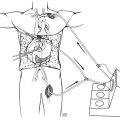
Did you know that some people visit pharmacies twice as often as they visit their doctors? This shows how much we rely on pharmacists in our day-to-day lives. Yet, despite being so accessible, pharmacists rarely get the recognition they deserve.
Pharmacists are often the first point of contact for anyone dealing with health concerns. They answer questions, offer advice, and guide patients in managing their conditions. Their work directly impacts community health, but most of us don’t realize the depth of their contributions. In many cases, they fill the gaps left by busy healthcare systems, saving both time and resources.
This article explores why pharmacists are truly the unsung heroes of community health.
The Vital Role of Pharmacists in Everyday Healthcare
Pharmacists are healthcare professionals who assist patients daily with common medical concerns. When someone has a sudden headache, fever, or allergy, a pharmacist is often the first person they approach for help. They provide advice on which over-the-counter medication might work best, what dosage is safe, and when it’s necessary to see a doctor.
Unlike a rushed consultation at a clinic, the guidance from a pharmacist is often quick, accessible, and free. They ensure people don’t misuse medicines and help them understand how their prescriptions work. This proactive role makes pharmacists essential in preventing small health problems from becoming bigger issues.
Diverse Career Paths in the Field of Pharmacy
While community pharmacies are the most visible workplaces, pharmacists have a wide range of career options. Some work in hospitals, focusing on complex treatments and working alongside medical teams. Others go into research and development, testing new drugs and treatments that can improve patient care. There are also roles in public health, clinical consulting, or even pharmaceutical regulation.
For anyone considering the pathway to become a pharmacist, it’s important to know that the field is far from limited. With a Doctor of Pharmacy (PharmD) degree, pharmacists can specialize in areas like oncology, pediatrics, or infectious diseases. This flexibility makes pharmacy a rewarding career choice with many opportunities for growth.
A Trusted Source for Quick Medical Guidance
In today’s fast-paced world, not everyone has the time or means to book a doctor’s appointment for minor health concerns. Pharmacists step in by offering reliable advice almost instantly. They answer questions about side effects, potential drug interactions, and proper medication schedules.
People trust pharmacists because they have direct and practical knowledge about medicines. This trust is especially important for elderly patients who often take multiple prescriptions. By offering quick medical guidance, pharmacists reduce confusion and ensure patients stay safe while managing their conditions.
Ensuring Medication Safety and Effectiveness
Medication safety is one of the biggest responsibilities of a pharmacist. They carefully check prescriptions to ensure that there are no harmful interactions between drugs. For instance, if a patient is already taking medication for blood pressure, the pharmacist will make sure any new prescription doesn’t interfere with it.
Pharmacists also educate patients on how to take their medicines correctly, such as whether they need to take them with food or on an empty stomach. Their attention to detail prevents errors and improves treatment outcomes. By catching potential problems early, they protect patients from serious side effects and complications.
Educating Communities About Health
Pharmacists are not just focused on individual patients; they also play a big role in educating entire communities. Many pharmacies run health campaigns or offer free services like blood pressure checks or diabetes screenings. They explain medical conditions in simple terms that anyone can understand, making health information more accessible.
This education goes a long way in helping people take better care of themselves. Whether it’s teaching a parent about safe medication for their child or advising on preventive care, pharmacists ensure communities have the knowledge to stay healthy.
Supporting Public Health Initiatives
Pharmacists are a key part of public health programs. During the COVID-19 pandemic, they were on the frontlines, helping with vaccinations and distributing essential supplies. Beyond emergencies, they continue to assist with flu shots, wellness programs, and disease awareness campaigns.
By being active participants in public health initiatives, pharmacists extend their impact beyond the pharmacy. Their involvement helps governments and health organizations reach larger populations, particularly those who may not have easy access to hospitals or clinics.
Pharmacists as Partners in Managing Chronic Conditions
Chronic conditions like diabetes, hypertension, and asthma require ongoing care and careful medication management. Pharmacists play a key role in helping patients stay on track with their treatments. They provide advice on how to use devices like inhalers or blood glucose monitors correctly. They also remind patients to refill prescriptions on time to avoid gaps in treatment.
Many pharmacists conduct regular medication reviews for patients with long-term conditions. These reviews ensure that the medicines are still effective and safe. For example, if a patient experiences side effects, the pharmacist can suggest alternatives or discuss adjustments with the prescribing doctor. This active involvement makes pharmacists true partners in helping patients manage chronic diseases.
How Pharmacists Reduce the Strain on Healthcare Systems
Healthcare systems around the world are under pressure from high patient demand. Doctors and clinics often have long waiting times, especially for minor health concerns. Pharmacists help reduce this strain by addressing many issues that do not require a doctor’s visit.
By guiding patients with over-the-counter remedies or answering questions about common illnesses, pharmacists save time for both patients and healthcare providers. They also identify cases that genuinely need medical attention, ensuring that only necessary appointments take up valuable clinical resources. This efficient approach helps the entire healthcare system function more smoothly.
Pharmacists do far more than prepare and hand out medicines. They are trusted advisors, educators, and partners in health. Their work in managing chronic conditions, preventing medication errors, and supporting public health programs is vital to every community.
Despite their importance, pharmacists often go unnoticed compared to doctors or nurses. It’s time to change this perception and appreciate the impact they have on our daily lives. Next time you visit your local pharmacy, remember that the advice and care you receive come from highly trained professionals dedicated to your well-being. Pharmacists truly are the unsung heroes of healthcare.




